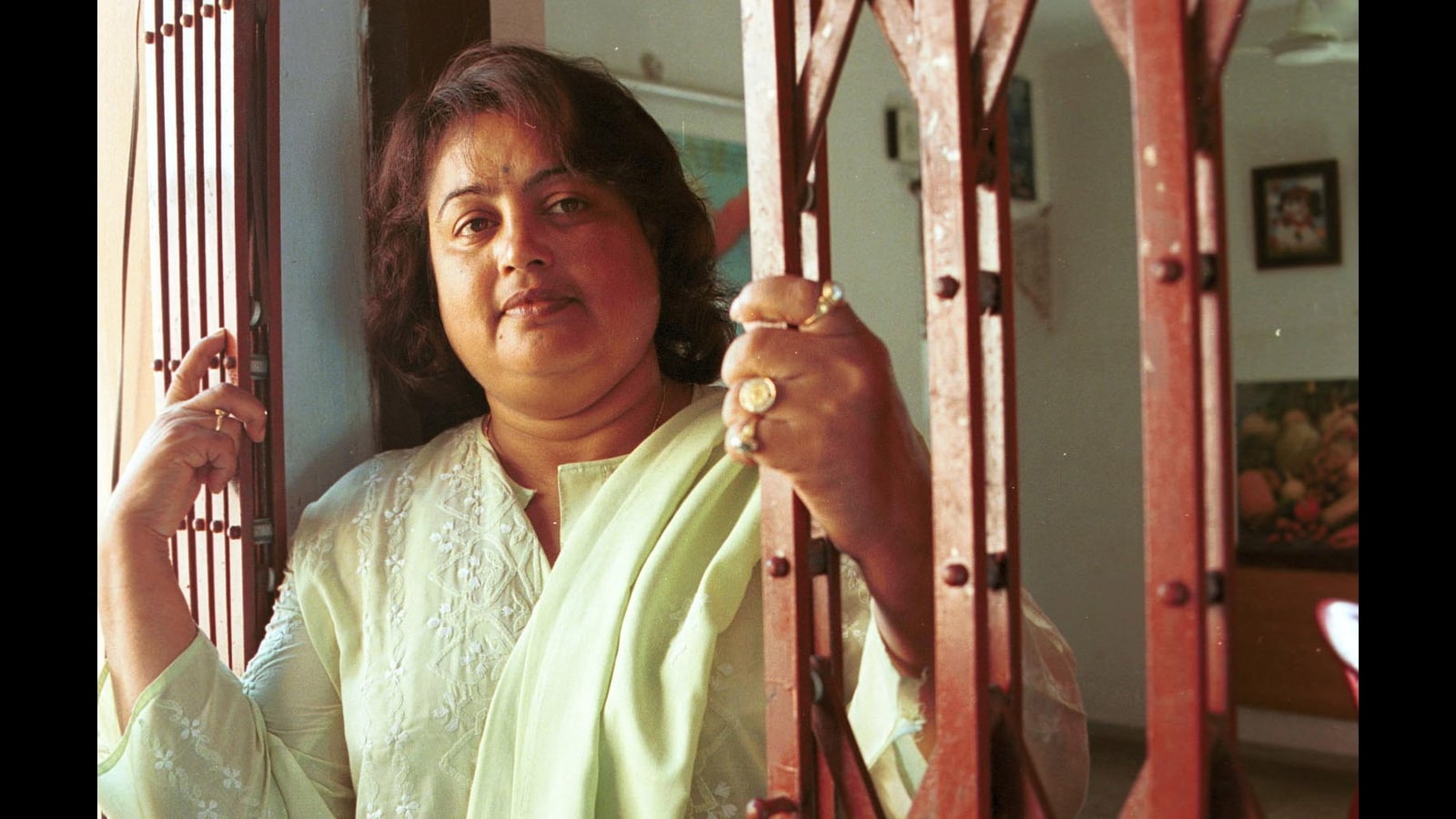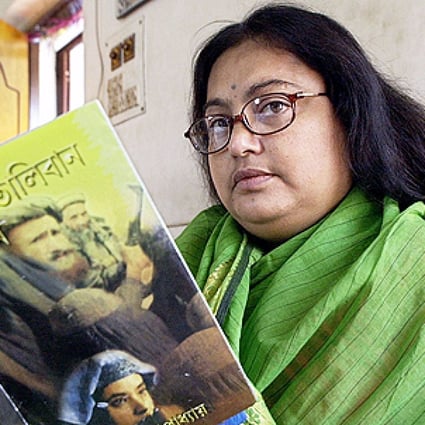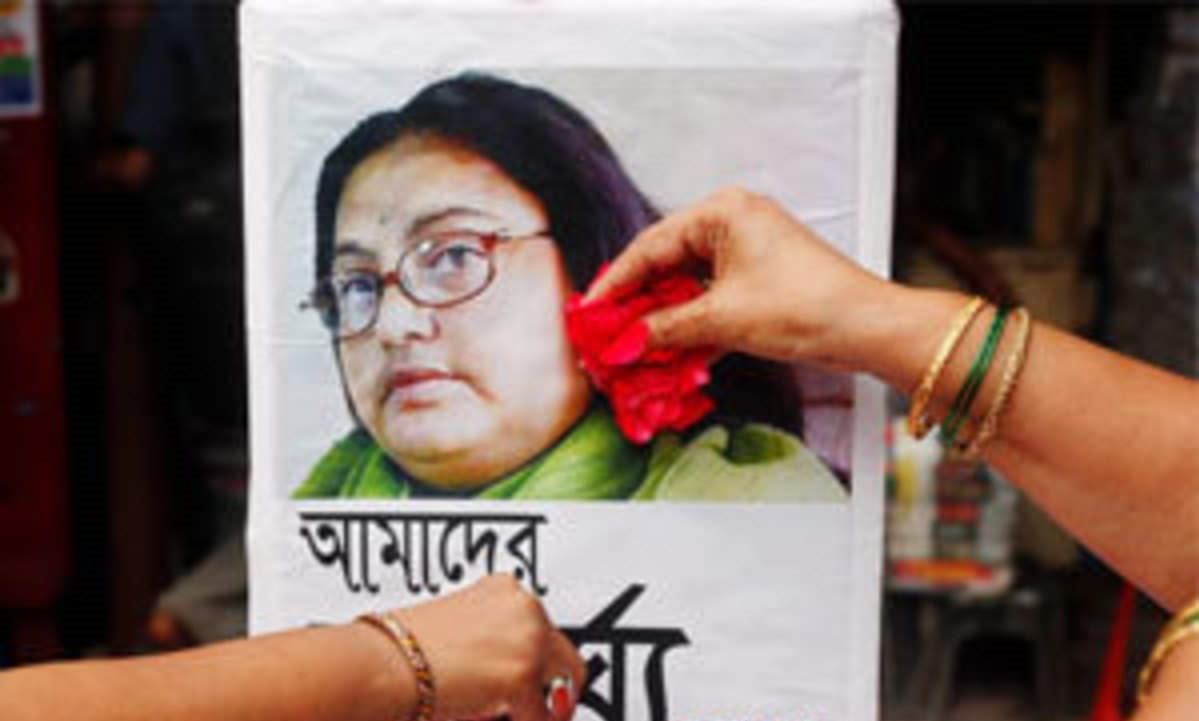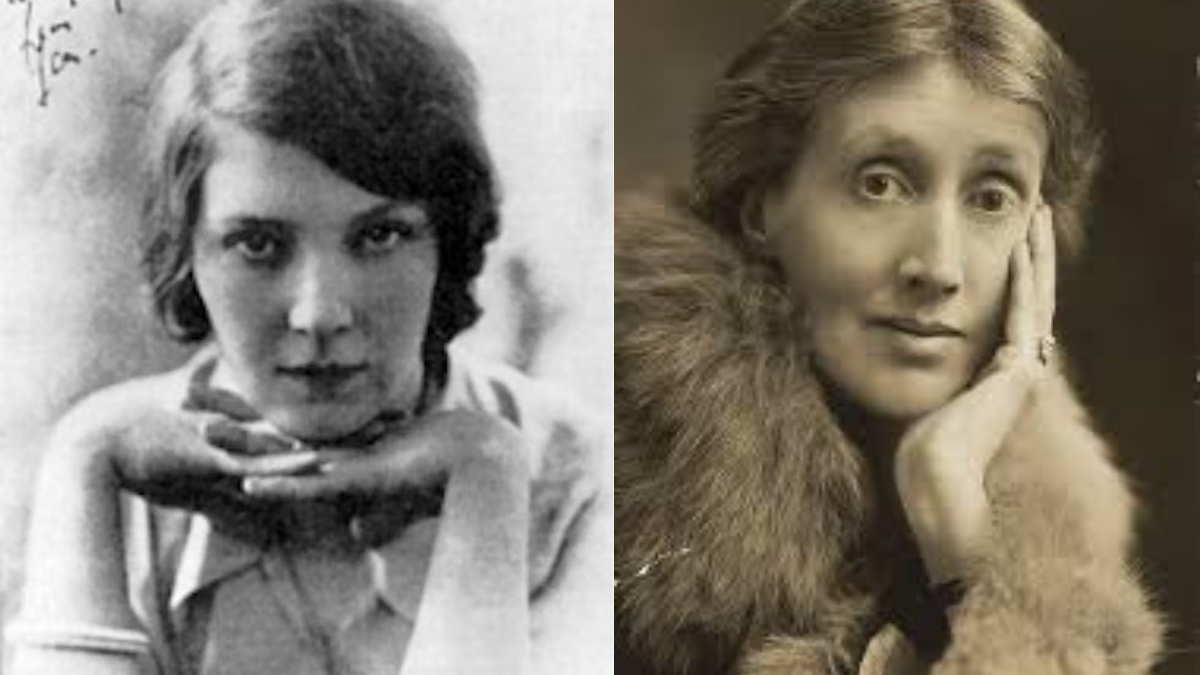The first time I heard about Sushmita Banerjee was in 2013. I was in ninth standard, when one day I returned home to find my mother devastated. She told me that Sushmita Banerjee had passed away. When I informed her about my ignorance, she went up to her bookshelf and handed me a book – Kabuliwalar Bangali Bou (A Kabuliwala’s Bengali Wife).
I began reading the book and was immediately transported to a part of Afghanistan so grim and patriarchal that women’s lives barely had any value. Born on the 2nd of December 1959, Sushmita Banerjee came from a well-to-do Bengali family. A fan of Rabindranath Tagore’s short story Kabuliwala she was fascinated by “Rehmat’s Afghanistan.” But she soon realised that reality was far from it. She secretly married her husband Janbaz Khan, who hailed from Afghanistan on 2nd July 1988 and decided to go to Afghanistan to meet his family a year later.
On visiting, she understood that political instability and patriarchy left the women of Afghanistan deprived of their basic rights. As her life unfolded further, almost 2500kms away from home, she realised that she was not alone. Many Bengali women had gone to Afghanistan after marrying Afghani businessmen who they met in Kolkata, and some of them endured worse fates than her.
When she went to Afghanistan for the first time, the country was under the Soviet rule. As she landed in Kabul, she was exposed to the aftermath of years of occupation. The geographical challenges of the rough, desert like Paktika province in southeastern Afghanistan was one of the few problems she faced in the beginning. It was when the layers of patriarchy were laid bare to her, that she revolted. Apart from her struggles to stand up to the patriarchal values of her husband’s family, she also described her inherent fear of an impending doom that the war was capable of initiating.

Career as a health worker
In an incident described in her memoir, she writes about the lack of doctors and basic medical facilities in Afghanistan. The incompetency of unprofessional doctors and the people’s blind faith in them resulted in many mistreatments and fatalities especially in women and children. The lack of qualified, experienced doctors near her village and the presence of fraud ones all over the country disturbed her greatly. Sensing the graveness of the matter, Sushmita Banerjee did what was in her power.
She studied books on medicine and decided to help women and children in the province of Paktika. She soon opened a dispensary from where she treated her patients, provided them with proper dosages of the correct medicines and gave out minimal life-saving medical advice. Though not a professional doctor, she had acquired the basic knowledge of medicine and provided treatment at a far cheaper rate. She took it upon herself to conduct in-house deliveries in a more sanitised manner and soon gained popularity amongst women in and around her village.
Throughout her memoir, she describes the authoritarian rules that had shaped the patriarchal backbone of the country, but in her description of the Taliban she laments the fact that they once were a ray of hope for the people of Afghanistan. In a nostalgic way, she remembers the time she cooked for members of the group who visited her village. The Taliban that once promised a better future for Afghanistan soon turned on its own people. Under their rule, atrocities against women became limitless
Her medical practice flourished and people from far came to visit her. It was through her practice that she developed her own identity even after being forsaken by her husband. She refused to give into the helplessness of abandonment and decided to flee the West-Asian country.
Also read: With Return Of Taliban, ‘Women are the Last Colony’ In Afghanistan

First attempt to escape
Almost six years after her husband had abandoned her in the desert country, Sushmita decided to take matters in her own hands and fled with her adopted child Tinni. Although she succeeded to leave the country and travel far into Pakistan, she was unsuccessful. In her attempt to get a passport first from the Indian embassy and then from the Afghanistan embassy, she was caught by her in-laws.
She returned to her village with a promise from her husband who was then living in Kolkata for his business reasons that she will be let go after a few months. But her choices angered her in-laws so much that Tinni was taken away from her. Detached from her daughter, her life in Afghanistan became unbearable. As time passed, she realised that her in-laws were reluctant to let her return to India. So, she decided to flee again.
Escape from Taliban
Throughout her memoir, she describes the authoritarian rules that had shaped the patriarchal backbone of the country, but in her description of the Taliban she laments the fact that they once were a ray of hope for the people of Afghanistan. In a nostalgic way, she remembers the time she cooked for members of the group who visited her village. The Taliban that once promised a better future for Afghanistan soon turned on its own people. Under their rule, atrocities against women became limitless.
The biggest problem in her plan to escape was the Taliban rule which necessitated a man’s presence with a woman whenever she stepped out of the house. But living in captivity was not an option for free spirited Sushmita. She decided to flee again in the middle of the night. She left her home and took shelter in a nearby village as a travelling doctor. But she was soon captured by some members of the Taliban.
In 2013, she returned to Afghanistan with a hope to reunite with her husband and adopted daughter. But after her return, she was soon executed by members of the Taliban on the night of 4th September 2013. Her assassinated body was found the next day in Saharana. Though the Taliban first denied their involvement in her murder, they later admitted to it justifying that they believed Sushmita Banerjee to be an Indian spy
The elders from her village and her in-laws were summoned, while the members of the Taliban decided on her fate. Excluded from the conversation about her own future, Sushmita Banerjee felt a surge of anger. She went inside the room and rather cinematically picked up one of their machine guns and pointed it at them. At gun point she threatened the Taliban to let her leave at that very moment because she feared if she stayed the night she might be executed.

She was permitted to leave and with the help of her neighbors in her village she successfully came to Kabul. After getting her passport and visa from the Indian embassy in Afghanistan, she was finally able to leave the country and return home to Bengal.
After she returned, she wrote about life in Afghanistan under the Taliban rule. Apart from Kabuliwalar Bangali Bou (A Kabuliwala’s Bengali Wife), her significant works include Taliban Atyachar – Deshe o Bideshe (Taliban Atrocities in Afghanistan and Abroad), Mulla Omar Taliban O Ami (Mullah Omar, Taliban and I). A film adaptation of her memoir was also made in 2003 titled Escape from the Taliban.

In 2013, she returned to Afghanistan with a hope to reunite with her husband and adopted daughter. But after her return, she was soon executed by members of the Taliban on the night of 4th September 2013. Her assassinated body was found the next day in Saharana. Though the Taliban first denied their involvement in her murder, they later admitted to it justifying that they believed Sushmita Banerjee to be an Indian spy.
The country that Sushmita Banerjee once escaped has now, once again, fallen under the extremist Taliban rule. In her relentless practice as a health-worker, she stood up against all atrocities that the country inflicted, especially on women. She fled the Taliban and her death sentence once, but few were as lucky as her. For them, she wrote relentlessly. Through her own story she not only depicted the truths about Afghanistan, but also told the tales of many helpless women stuck in oppressive marriages in utterly patriarchal households.
Also read: Conflict-Fatigue & Collective Denial: The Conundrum Of Violence Against Women
Featured Image Source: The Economic Times
About the author(s)
Udhriti Sarkar is a post-graduate student at Calcutta University. When she is not obsessing over fictional characters, she observes people and writes about them




